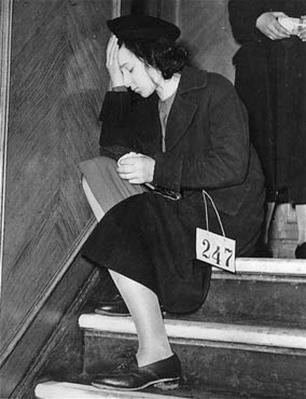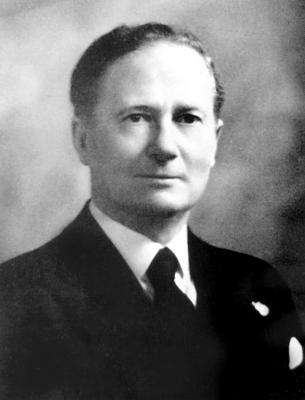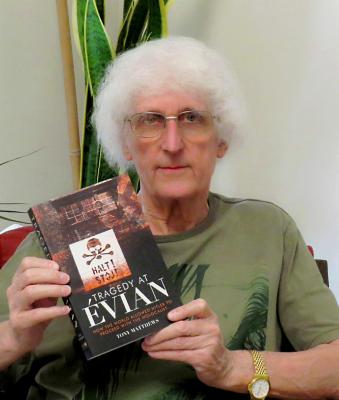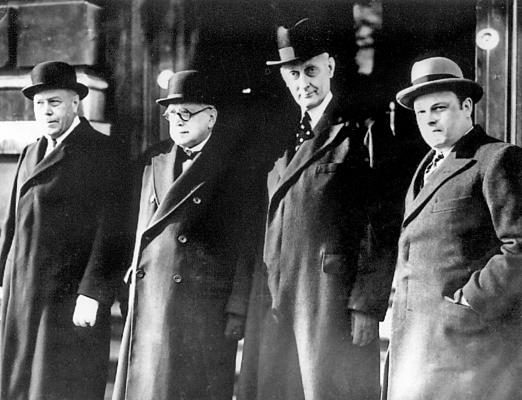This week when the world pauses to remember the anniversary of the end of WWI on 11 November Wide Bay historian and author Tony Matthews talks to Noosa Today about his new book, Tragedy at Evian, that details the chilling background to the Holocaust and lessons learnt from the past.
Tragedy at Evian has been released in Australia and internationally to mark the 75th anniversary of the liberation of the Auschwitz extermination camp and the end of World War II.
The book provides in-depth details of a controversial international meeting that took place at Évian-les-Bains, France, in July 1938 during which diplomatic representatives of thirty-two countries, including Australia, came together in an effort to find ways of ameliorating the plight of European Jews then suffering beneath the murderous heel of Nazi oppression.
It has taken Dr Matthews almost thirty years to write this revealing book which provides the reader with a stunning reality check of exactly how the Holocaust could either have been prevented or, at least, mitigated, saving potentially millions of lives.
Sourced from tens of thousands of previously top secret documents from the US State Department, this books reveals a new, extremely concerning and thought-provoking background to our known history of the Holocaust.
“There is no doubt that the Évian conference was a critical turning point in world history,“ Dr Matthews said. “The outcome of the conference set the stage for the attempted annihilation of the Jewish race in Europe. No other international conference in modern history has played such a profoundly significant role in world events and affected the fates of so many individuals, yet details of the conference remain almost unknown today.
“I spoke on ABC Radio nationally about my search to find people who had either been at the conference or who had knowledge of the event. “However, despite such wide publicity I was unable to find a single person in Australia who knew anything about the Évian conference which made me even more determined to write the book because I wanted people to know what had happened back then. Making people aware of what happened at Évian has been a driving force behind the writing of this book. In addition to the classified State Department files, almost all of the firsthand information I obtained about personal experiences of Jewish refugees during the war came from the archives of the Holocaust Museum in the United States. It was from these that I largely gained an understanding of some of the personal experiences of refugees as they had attempted to flee from the Nazis.“
At Évian, thirty-nine refugee organisations including twenty Jewish groups were to give factual, firsthand evidence of the treatment then being meted out to the Jews under German control. Theirs was a simple cry in the darkness: ‘Help us to get out,’ they told the delegations, ‘or we shall not survive.’
Unfortunately, with only a few exceptions, European Jews were not welcome anywhere in the world. Many countries were taking limited numbers of refugees but the only country where Jews could find a true welcome was in Palestine, and there, by only the Jewish community.
On the first day of the conference the U.S. ambassador, Myron C. Taylor, rose for his inaugural address. The auditorium was hushed, there was an expectant silence as the delegates, the press and the world waited to learn what the U.S. would offer. Speculation was rife that the U.S. would set a high quota of Jewish immigrants from Germany. Many, in fact, believed that the U.S. would announce they were prepared to take up to 600,000 refugees. Taylor’s speech began with details of the need for fast action on behalf of the Jewish refugees but later continued that America’s immigration quota system would not be changed to any great degree in order to accommodate the Jewish problem. He acknowledged that a full quota of German and Austrian immigrants – amounting to slightly more than 27,000 people – would be accepted for the following year. However, he failed to point out that a large percentage of these immigrants would be Christians.
The Jewish representatives at Évian were stunned into silence at the US ambassador’s words. The country that had promised so much was now offering virtually nothing beyond those measures already in place – and Taylor’s proposals were to set the example for the tragic series of events that followed.
As the conference ground to its predictable close it became patently obvious to the representative countries – and particularly obvious to Adolf Hitler – that the world generally had little time for the Jews. Even Australia, with its vast open areas perfectly suitable for immigrant settlement, would do little or nothing to assist with the plight of the Jewish refugees. ‘It will, no doubt, be appreciated that as we have no real racial problems we are not desirous of importing one by encouraging any scheme of large-scale foreign migration,’ the Australian representative to the conference, Mr T.W. White, told its delegates.
In Berlin, Hitler viewed the resolution of the Évian conference with considerable contempt. He had been hoping that the representative nations would take the Jewish problem off his agenda. Now, however, he believed that he was left with little alternative. Jews were not welcome anywhere in the world. There could be only one solution.
Extermination!
Golda Meir, future Prime Minister of Israel was later to state: “After the conference at Évian-les-Bains, it became chillingly clear that the Jewish people were entirely on their own.““My role in accessing the highly classified State Department files and writing the book was simply an attempt to demonstrate that we will always have to look for the warning signs,“ Dr Matthews said. “The persecution of the Jews of Europe was a powerful signpost indicating that a great evil was taking place and that greater evil would follow if something were not done quickly to prevent it. We see today many such warning signs with the dramatic increase of ultra-right-wing nationalism and the massive surge in well armed militia groups coupled with insidious political manipulation. Even Germany, which, since the war, has been at the forefront of crushing any semblance of ultra-right-wing nationalism, is now facing considerable problems with the growth of neo-Nazi influences. These are all warning signs of a dangerous future which will be exacerbated by political and social unrest brought about through deadly pandemics, the clashes of political ideologies and other forms of global influences such as climate change.“
Tragedy at Evian is being published in Australia by Big Sky Publishers and in the UK and US by Pen and Sword Books.
For more information visit tragedy-at-evian.weebly.com or drtonymatthews.weebly.com











